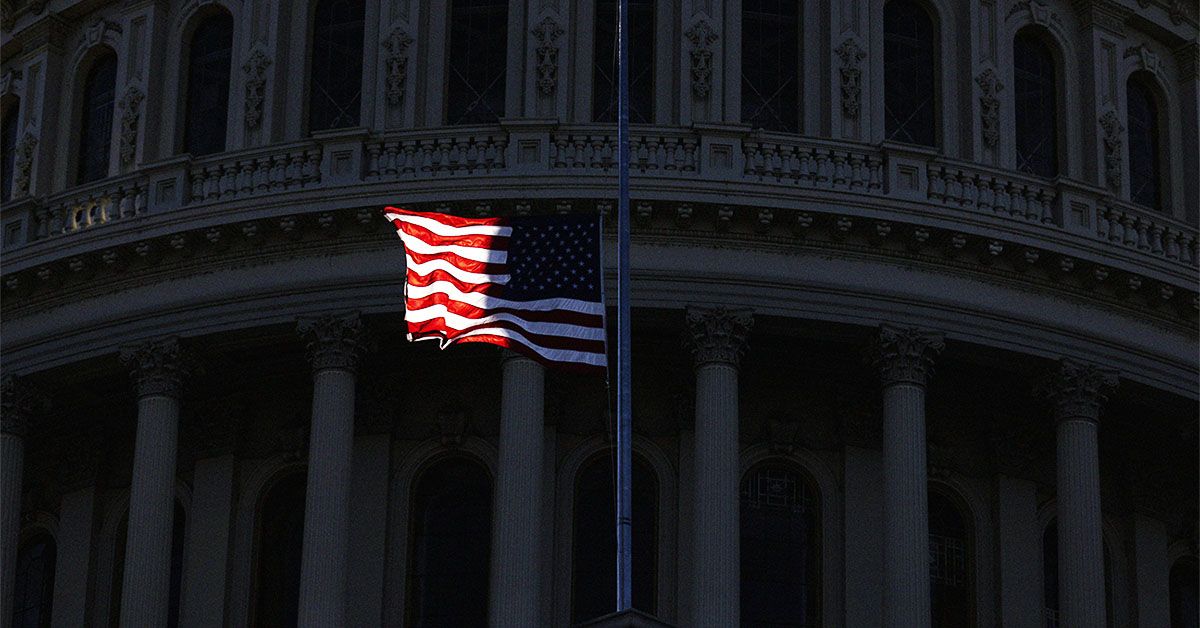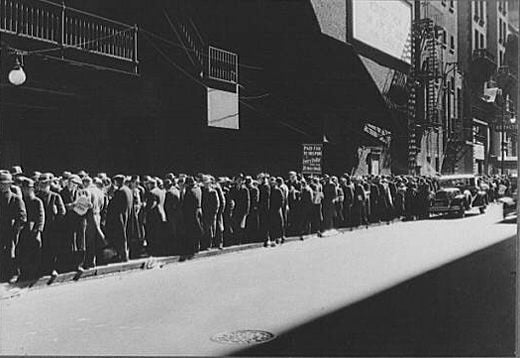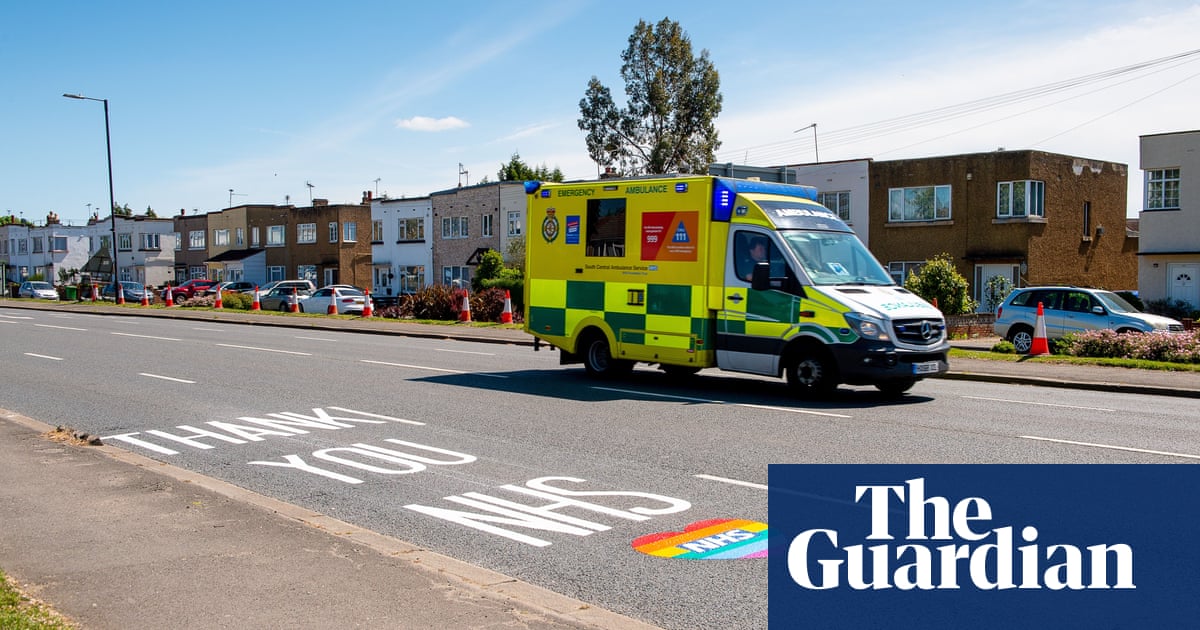@Radegast74, you can threaten me all you want... I've been through hell and back... which you or the people on this site will never know about. If that is a threat, then maybe I should call the police, or my friends in the govt to check in on you.Educate yourself, man! Otherwise, you are just going to feel whirled around by forces that you don't understand.
Coronavirus COVID-19 Thread
- Thread starter Jolly_Green_Giant
- Start date
-
- Tags
- coronavirus virus wuflu
Radegast74
Space Marshal
If you view education as a threat...especially self-education...well, I've run out of things to say.@Radegast74, you can threaten me all you want... I've been through hell and back... which you or the people on this site will never know about. If that is a threat, then maybe I should call the police, or my friends in the govt to check in on you.
This is getting old dude. This is the second or third time you've misinterpreted a post you disagree with as a personal threat. NOBODY is threatening you. We're all a bunch of gamer types shooting the shit and trying to have a good time (and every now and then getting into more serious discussions). You do remember about the First Amendment right? Freedom of Speech and Expression. Also there are lots of members here who are Veterans or active Service. You're the only one throwing that around like a badge whenever you disagree with somebody else. Let's stick to topic (Covid19) shall we?@Radegast74, you can threaten me all you want... I've been through hell and back... which you or the people on this site will never know about. If that is a threat, then maybe I should call the police, or my friends in the govt to check in on you.
Back to topic.
Looks like the Covid19 cases in British Columbia are truly on the wane.
29 new cases for May 8th, bringing the total cases to 2315 with 1579 recovered. 73 are currently hospitalized while there are 20 in ICU and 1 death. My partner's Covid19 ward is pretty quiet these days.
People overall have been respecting social distancing measures. My friends and colleagues all agree that we'll try and maintain social distancing norms we've developed during the lock down even after we're let back to work. I think that's something all people should do to mitigate a second wave (which will come). With freedoms come responsibilities after all right?
I had a chat with my dad today. We were wondering why the East Coast is hit so badly while the West Coast is relatively unscathed. We came to the unscientific conclusion that Asia was quick to implement lockdown measures while Europe was slower. West coast gets a lot of travelers from Asia, while the East gets their travelers from Europe. Any logic in that?
Looks like the Covid19 cases in British Columbia are truly on the wane.
29 new cases for May 8th, bringing the total cases to 2315 with 1579 recovered. 73 are currently hospitalized while there are 20 in ICU and 1 death. My partner's Covid19 ward is pretty quiet these days.
People overall have been respecting social distancing measures. My friends and colleagues all agree that we'll try and maintain social distancing norms we've developed during the lock down even after we're let back to work. I think that's something all people should do to mitigate a second wave (which will come). With freedoms come responsibilities after all right?
I had a chat with my dad today. We were wondering why the East Coast is hit so badly while the West Coast is relatively unscathed. We came to the unscientific conclusion that Asia was quick to implement lockdown measures while Europe was slower. West coast gets a lot of travelers from Asia, while the East gets their travelers from Europe. Any logic in that?
Last edited:
No one except @Radegast74 . He could have called me a moron or idiot. I am done here for today and have a good night. @Radegast74 does not need your protection.NOBODY is threatening you.
AntiSqueaker
Space Marshal
"I hate government overreach and quarantine but i'll threaten to call the cops or my 'friends in government' because someone said something mean to me on the internet"


Not to ask a personal question, but which county/state is this? It would be interesting to log the transmission rate if I can find one. Please feel free to refuse to answer, I don't want you to be giving out personal details on the internets if you aren't comfortable with that.Today was the first day the county opened. I love it people are outside playing and enjoying life.
If one lawyer can infect 37 people it seems the transmission rate is 100% (assume each one of those 37 people infects another 37 people and you've got wildfire going on), as in if you come into contact with it, it will set up shop in your cells unchallenged. With a current mortality rate of 3.4% and a rough total population of 330,500,000 we are looking at 11,237,000 total fatalities if 100% of the population comes in to contact with the contagion.
This will of course very dependent on what the actual mortality rate is and a countries population balance of vulnerable persons. In the UK it has been observed people of BAME (black, asian and minority ethnic) backgrounds are twice as at risk of death from the pathogen, the elderly, and persons with underlying medical complications also have a higher risk of death.
The above complications of course assume a 100% exposure rate, all have varying causes and complications which may not transplant directly from one countries expiriance to another, such as lifestyle etc, and there are unknowns that may also have negative or positives so the actual risk is going to vary wildly, so lets put tolerance of 10% on that 11 million number - So a rough estimate is somewhere between 10,113,300 and 12,360,700.
To put this in context, the latest data I can find for a yearly death toll in the US was 2017, at 2.8 million.

The top leading causes of death in the United States
This article looks at the leading causes of death in the United States, including heart disease, cancer, and the impact of COVID-19.
 www.medicalnewstoday.com
www.medicalnewstoday.com
I looked up the death rate from the 1930's Great Depression, and was surprised to find the mortality rate from the data they were able to source revealed it actually remained fairly steady rather than rose:
"Our study provides evidence that even major depressions do not imply mortality crises," says study lead author David Stuckler, of the London School of Hygiene & Tropical Medicine. "Whether health improves or worsens during hard times depends mainly on how governments choose to respond."

Great Depression Had Little Effect on Death Rates
So we now have a base level for how many an economic depression could kill (I'm not saying it's zero, because it is not) it's a question of which is more lethal: A depression which protects a lot of people from the pathogen but effects their lifestyle/livelihood (without government support to maintain it) or a pathogen with a 100% transmission rate and a mortality rate of 3.4%...
Interesting times, the die is cast. We can only sit back and see what happens now.
Last edited:
He didn't call you either things though. You read between the lines and came to that conclusion. I get it that passions are high at the moment because people are scared and going stir crazy. We're all facing something that we've never faced before and feel powerless. Folks deal with it differently it seems. Many hoard toilet paper and binge watch Netflix. I just cook a lot, poke some plants in the garden and spend way too much time here (and in Star Citizen, World of Tanks, Mount and Blade 2 etc). Then there are others who are easily irritable and feel slighted whenever they engage in conversation. Don't be that guy, we're all friends here.No one except @Radegast74 . He could have called me a moron or idiot. I am done here for today and have a good night. @Radegast74 does not need your protection.
Have a good night and clear your head. I'm sure we'll get back to this tomorrow.
Things are never black and white.Not to ask a personal question, but which county/state is this? It would be interesting to log the transmission rate if I can find one. Please feel free to refuse to answer, I don't want you to be giving out personal details on the internets if you aren't comfortable with that.
If one lawyer can infect 37 people it seems the transmission rate is 100% (assume each one of those 37 people infects another 37 people and you've got wildfire going on), as in if you come into contact with it, it will set up shop in your cells unchallenged. With a current mortality rate of 3.4% and a rough total population of 330,500,000 we are looking at 11,237,000 total fatalities if 100% of the population comes in to contact with the contagion.
This will of course very dependent on what the actual mortality rate is and a countries population balance of vulnerable persons. In the UK it has been observed people of BAME (black, asian and minority ethnic) backgrounds are twice as at risk of death from the pathogen, the elderly, and persons with underlying medical complications also have a higher risk of death.
The above complications of course assume a 100% exposure rate, all have varying causes and complications which may not transplant directly from one countries expiriance to another, such as lifestyle etc, and there are unknowns that may also have negative or positives so the actual risk is going to vary wildly, so lets put tolerance of 10% on that 11 million number - So a rough estimate is somewhere between 10,113,300 and 12,360,700.
To put this in context, the latest data I can find for a yearly death toll in the US was 2017, at 2.8 million.

The top leading causes of death in the United States
This article looks at the leading causes of death in the United States, including heart disease, cancer, and the impact of COVID-19.www.medicalnewstoday.com
I looked up the death rate from the 1930's Great Depression, and was surprised to find the mortality rate from the data they were able to source revealed it actually remained fairly steady rather than rose:
"Our study provides evidence that even major depressions do not imply mortality crises," says study lead author David Stuckler, of the London School of Hygiene & Tropical Medicine. "Whether health improves or worsens during hard times depends mainly on how governments choose to respond."

Great Depression Had Little Effect on Death Rates
www.smithsonianmag.com
So we now have a base level for how many an economic depression could kill (I'm not saying it's zero, because it is not) it's a question of which is more lethal: A depression which protects a lot of people from the pathogen but effects their lifestyle/livelihood (without government support to maintain it) or a pathogen with a 100% transmission rate and a mortality rate of 3.4%...
Interesting times, the die is cast. We can only sit back and see what happens now.
The United States great depression went from 1929 to 1941 and its end was brought about due to the United States joining World War 2. In fact, World War 2 itself was partly caused by the global crash that hit in 1929 that helped crate conditions such as widespread unemployment. Economic downturn can always be relied upon to create conditions of civil, political, and international unrest. Countries that have borrowed over 70% of their GDP are often at the tipping point of hyper-inflation which often leads to the value of the currency plummeting in foreign exchange markets. The nation's importers go out of business as the cost of foreign goods skyrockets. Unemployment rises as companies fold. Then government tax revenues fall and it has trouble providing basic services., all leading to political instability. More often then not this political instability does not lead to more often markets and social liberties but turning to false security in a strong leader.
While I do wish the world people would come together in peace and lending hands as that would truly speed up the recovery, all too much of history is littered with the stark reality that those who fall on desperate times seek to take what they need from others.
We also must remind ourselves that our lockdowns and social distancing is not going to eradicate this virus all it hopes to accomplish is slow down the spread. We also have to realistically look at the economic impact as to what we have to come back to or at what point we push it too far.
for a minute, I thought I had accidentally wandered onto Spectrum
now I remember why I've been ignoring this thread
now I remember why I've been ignoring this thread
Absolutely trueThings are never black and white.

UK numbers for today Saturday 9th May:
Total confirmed 215,260 with 3,896 new, total dead 31,587 with 346 new.
Yesterday was a bank holiday so please assume todays numbers are incomplete as that's a heck of a drop.

Todays status comes as data suggests people are staying away from hospitals even when they need (non-virus related) attention and are dying at home as a result:

 www.theguardian.com
www.theguardian.com
The status outlook is bought to us by observations that there has been a new theme running in some officials tone, from being surprised by the number of workers placed on furlough to the impression that "employees had been “too willing” to stay at home" as many people are still not enthusiastic about lockdown being lifted before it is considered safe to lift it:

 www.theguardian.com
www.theguardian.com
If true, this shows a staggering misunderstanding of the furlough system that they themselves put in place. No employee got to choose to go on furlough. They were placed on it by their employer whether they liked it or not. No employee is "too willing" to stay away from work, because if their workplace has put them on ferlough, they are not allowed to work as a condition of being put on furlough and they have no choice or say in when they get to return.
In this regard, on the international scale of "how close ones hands are to finding ones own arse", we are unfortunately still measuring the distance of the palms from the buttocks in AU (Astronomical Units - the distance from the earth to the sun, 150 million km, which is 8 minutes away at light speed or 40 minutes at Star Citizen Quantum Drive speed).
Total confirmed 215,260 with 3,896 new, total dead 31,587 with 346 new.
Yesterday was a bank holiday so please assume todays numbers are incomplete as that's a heck of a drop.
Todays status comes as data suggests people are staying away from hospitals even when they need (non-virus related) attention and are dying at home as a result:

More people dying at home during Covid-19 pandemic – UK analysis
Data suggests that sick may be avoiding hospital because of coronavirus fears
The status outlook is bought to us by observations that there has been a new theme running in some officials tone, from being surprised by the number of workers placed on furlough to the impression that "employees had been “too willing” to stay at home" as many people are still not enthusiastic about lockdown being lifted before it is considered safe to lift it:

Beware Tory narrative of a workshy public
Letters: Lee Cornish and Nick Broadhead on the government’s attempts to cover up its mishandling of the coronavirus crisis
If true, this shows a staggering misunderstanding of the furlough system that they themselves put in place. No employee got to choose to go on furlough. They were placed on it by their employer whether they liked it or not. No employee is "too willing" to stay away from work, because if their workplace has put them on ferlough, they are not allowed to work as a condition of being put on furlough and they have no choice or say in when they get to return.
In this regard, on the international scale of "how close ones hands are to finding ones own arse", we are unfortunately still measuring the distance of the palms from the buttocks in AU (Astronomical Units - the distance from the earth to the sun, 150 million km, which is 8 minutes away at light speed or 40 minutes at Star Citizen Quantum Drive speed).
Last edited:
I think it is ironic... the UN and WHO may have helped destroy the City that gave them a home.
@NaffNaffBobFace, I live in Colorado.
@NaffNaffBobFace, I live in Colorado.
Thanks @ColdDog, I'll try to find some info. With a gestation of between 5 and 12 days we may not see anything yet. Fingers crossed we just don't see anything.@NaffNaffBobFace, I live in Colorado.
Last edited:

Mystery Inflammatory Syndrome In Kids And Teens Likely Linked To COVID-19
Doctors in the U.S. and Europe are reporting a small wave of cases of what looks like a "shock syndrome" in young people. They have low blood pressure, inflamed hearts and other serious symptoms.
This is the test... Governor Polis (Democrat) has done a good job so far, so I expect he will continue to. See, I can like and vote for a Democrat :)Thanks @ColdDog, I'll try to find some info. With a gestation of between 5 and 12 days we may not see anything yet. Fingers crossed we just don't see anything.
I expect to see a spike, but with social distancing, face masks, and monitored business openings. I think Colorado was chosen because we have the infrastructure in the medical community. We also have a low obesity rate, which also helps.

CDC Obesity Map Shows Colorado's Low Overweight Population
The Centers for Disease Control released data about obesity rates in every state as self-reported in 2017.
Last edited:
Très cool, hopefully some good learning can come from this.This is the test... Governor Polis (Democrat) has done a good job so far, so I expect he will continue to. See, I can like and vote for a Democrat :)
I expect to see a spike, but with social distancing, face masks, and monitored business openings. I think Colorado was chosen because we have the infrastructure in the medical community. We also have a low obesity rate, which also helps.
I have located the following page overflowing with wonderful charts including some historic and continuing to be updated info which means I don't have to make a spreadsheet:
COVID19 | Colorado Department of Public Health and Environment
latest info for May 6th/7th
Which date was lock-down lifted properly to allow social gathering again so we can have an idea when people started getting close again?
Friday 5/8... it will be interesting. Going to Moab on the 25th, I'll let you know if I turn into a pile of goo. Take some great pictures to share too.Which date was lock-down lifted properly to allow social gathering again so we can have an idea when people started getting close again?

Best off road driving trails in Moab, Utah
Explore the most popular ohv / off road driving trails near Moab with hand-curated trail maps and driving directions as well as detailed reviews and photos from hikers, campers and nature lovers like you.
www.alltrails.com
Seems like almost all states are relaxing the lockdown... we gotta build those new pharma production plants coming back from China.
Are lockdowns being relaxed in my state? Here's how America is reopening amid the coronavirus pandemic.
The majority of states are moving forward with phased-in approaches that vary by county and city as the U.S. reopens amid the coronavirus pandemic.
Perfect, in on the ground floor to watch what goes on.Friday 5/8... it will be interesting. Going to Moab on the 25th, I'll let you know if I turn into a pile of goo. Take some great pictures to share too.
 Best of luck, Coloradans, 'tis an unknown path you now tread.
Best of luck, Coloradans, 'tis an unknown path you now tread.New antigen test approved

 www.wsj.com
www.wsj.com

FDA Grants Emergency-Use Status for First Coronavirus Antigen Test
The Food and Drug Administration has granted emergency-use authorization to Quidel for the first antigen test for the Covid-19 virus——a step that could escalate the nation’s ability to test for the disease.

